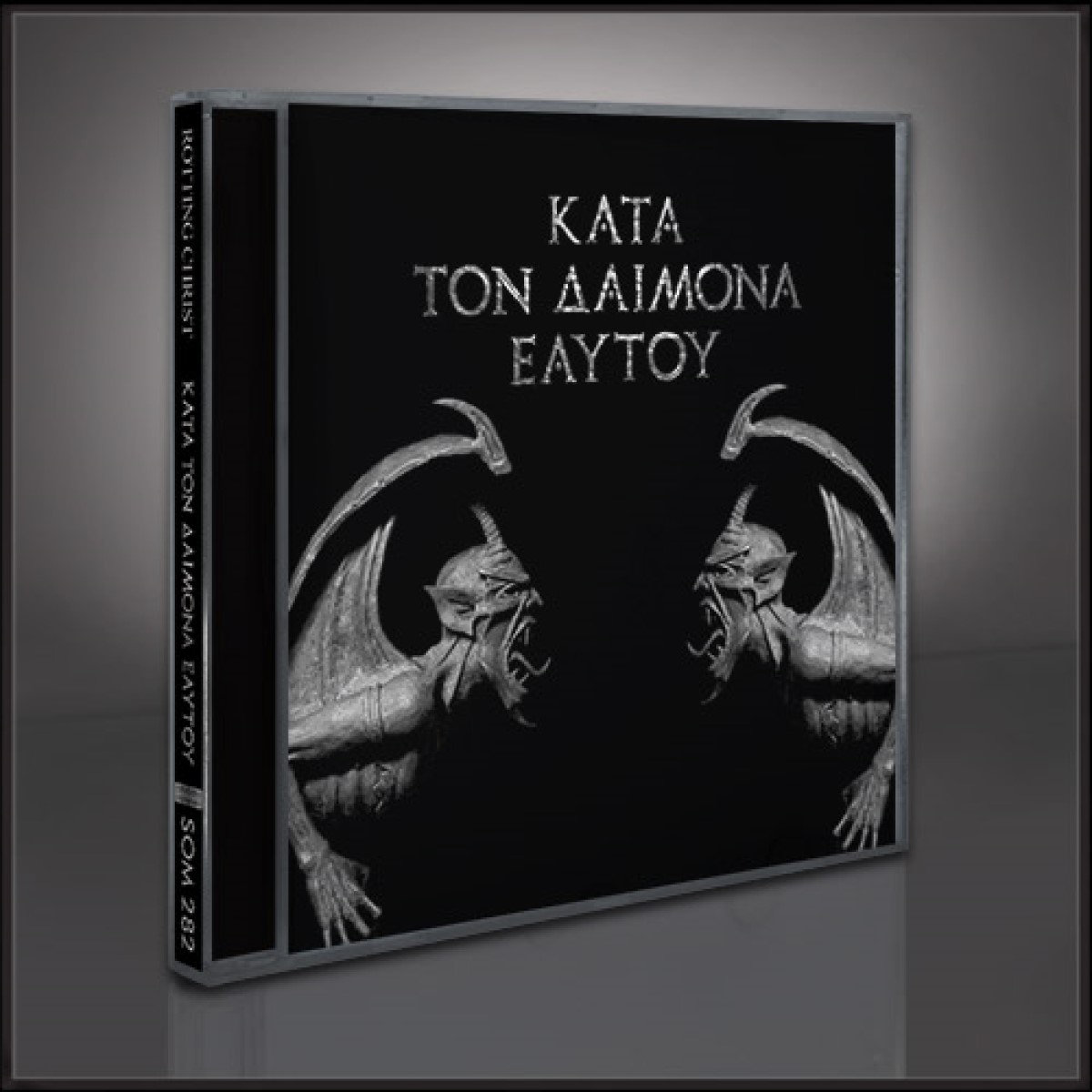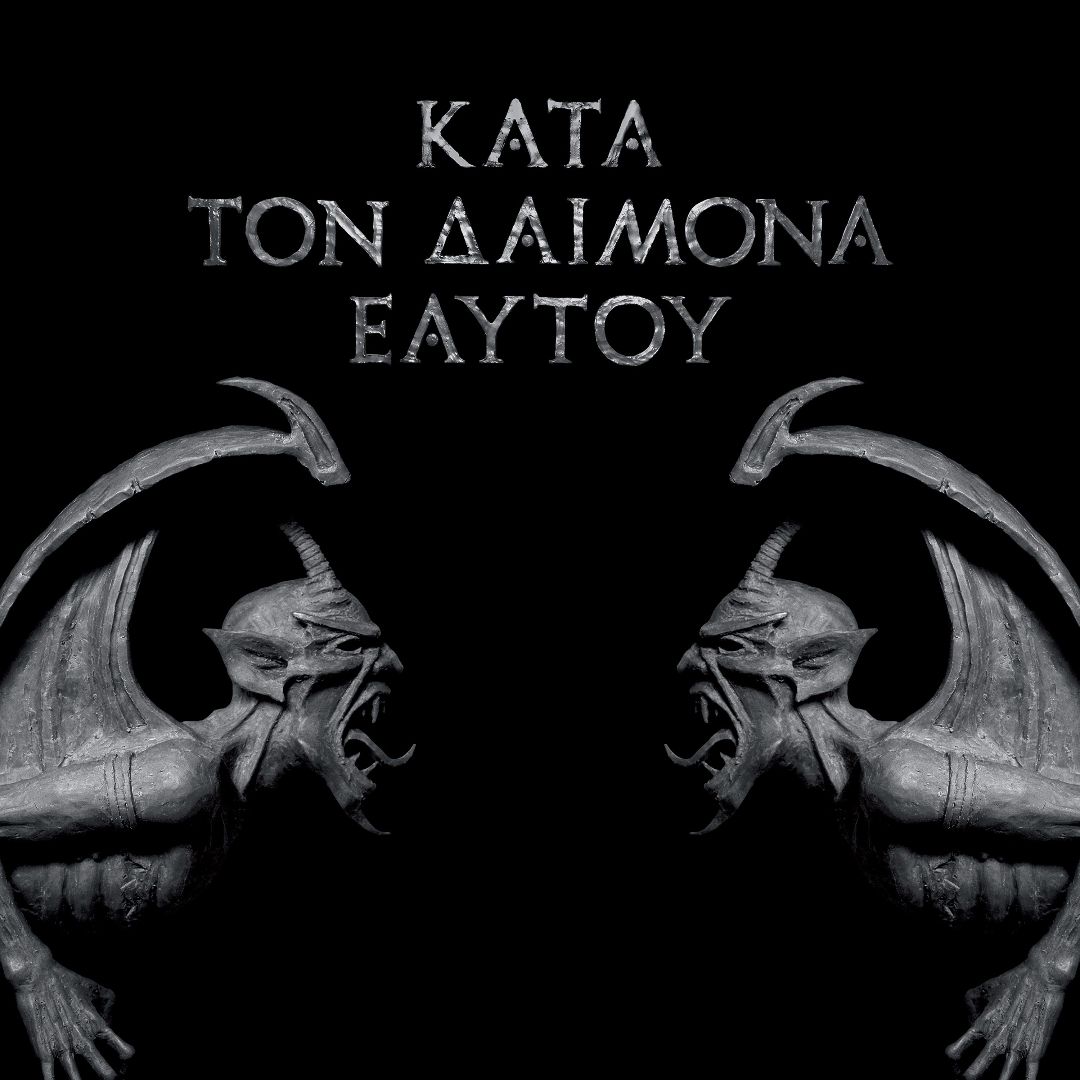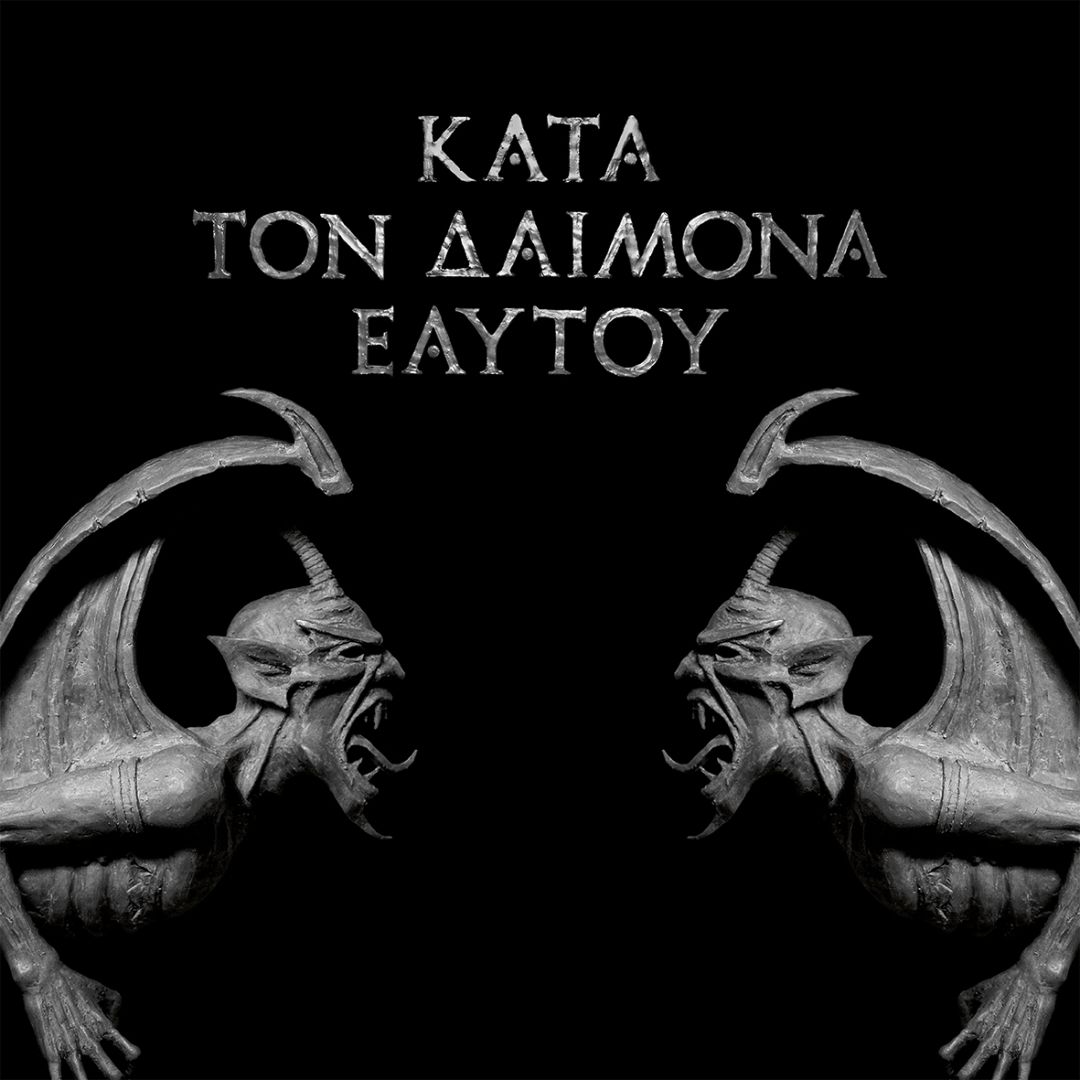
Rotting Christ Kata Ton Daimona Eaytoy [full album 2013] YouTube
3902 For Sale Videos Releases Showing 0 - 0 of 0 Explore music from Rotting Christ. Shop for vinyl, CDs, and more from Rotting Christ on Discogs.

Rotting Christ Kata Ton Daimona Eaytoy CD
Κατά τον δαίμονα εαυτού (transliterated: Katá ton Daímona Eautoú) is the eleventh full-length album by Greek extreme metal band Rotting Christ. The album title represents in Greek the well-known Aleister Crowley saying "Do what thou wilt". Overview

Buy CD ROTTING CHRIST Kata Ton Daimona Eaytoy
As I feel right. I'm acting as my conscience considers right. I'm going against the lord of Gods. Fear, awe, darkness, divine power. Phobia the hidden life's emotion. The cursed the exiled shadow - The seed of sorrow. Gloria to those that show devotion. And a divine honor - the holy bread to swallow.

Rotting Christ KATA TON DAIMONA EAYTOY samples YouTube
0:00 / 56:12 Rotting Christ - Kata Ton Daimona Eaytoy [full album 2013] alfa lamda 501 subscribers Subscribe 176K views 9 years ago Rotting Christ - Kata Ton Daimona Eaytoy [full album 2013] 01.

Amazon.deKata Ton Daimona Eaytoy [Vinyl LP]
Song:Kata Ton Daimona EaytoyAlbum:Kata Ton Daimona Eaytoy(2013)Artist:Rotting ChristLyrics:Πραττω κατα τον δαιμονα εαυτουΒαλλω κατα τον αρχοντα.

ROTTING CHRIST Kata ton daimona eaytoy GOLD VINYL DLP
On the famous gravestone at Père-Lachaise cemetery in central Paris is a bronze plaque engraved with three lines: full name, dates, ("1943-1971"), then a four-word phrase in ancient Greek, "KATA TON DAIMONA EAUTOU" as it's normally transliterated.

KATA TON DAIMONA EAYTOY Rotting Christ
Kata ton daimona eaytoy (κατά ton δαίμονα εαυτού) is a phrase from the ancient Greek, a concept embraced by the stoicism that can be interpreted in many ways in the modern day. This philosophy.

Best Buy Kata Ton Daimona Eaytoy [LP] VINYL
Compare Price and Edition Great Selection and Amazing Prices

Amazon.co.jp Kata TOn Daimona Eaytoy ミュージック
Kata Ton Daimona Eaytoy (Do What Thou Wilt) Album • Rotting Christ • 2013. 11 songs • 56 minutes Κατά τον δαίμονα εαυτού is the eleventh full-length album by Greek extreme metal band Rotting Christ. The album title represents in Greek the well-known Aleister Crowley saying "Do what thou wilt".

Rotting Christ, Kata Ton Daimona Eaytoy Vinil
ROTTING CHRIST lyrics - Κατά Τον Δαίμονα Εαυτού (Kata Ton Daimona Eaytoy)" (2013) album, community ''Rotting Christ'' https://plus.google.com/u/.

Best Buy Kata Ton Daimona Eaytoy [CD]
Kata Ton Daimona Eaytoy's songs are all of equally excellent quality and function as a stalwart body of work that hits the listener with full force. The record is wholly memorable, from the shamanic beginnings of "In Yumen-Xibalba" to the stomping culmination of "666", meaning its replay value should be, by all accounts, immense..

Kata Ton Daimona Eaytoy Amazon.co.uk CDs & Vinyl
Located in Père Lachaise Cemetery in Paris, France, the Jim Morrison grave is relatively easy to find. First, find your way to Père Lachaise Cemetery by taking the metro to Père Lachaise or Philippe Auguste stations on Line 2. You'll find that when you look this up on Google Maps, Jim Morrison's grave is literally a pin on the map.

Kata Ton Daimona Eaytoy Do What Thou Wilt Rakuten
Composed and Produced by Sakis TolisRecorded in Deva Sounds Studios-Athens, GreeceMixed and mastered in Fascination Street Studios-Orebro,Sweden by Jens Borg.

Rotting Christ Kata Ton Daimona Eaytoy (Ltd.Digibox) (CD) jpc
Κατά τον δαίμονα εαυτού is the eleventh full-length album by Greek extreme metal band Rotting Christ. The album title represents in Greek the well-known Aleister Crowley saying "Do what thou wilt".

KATA TON DAIMONA EAYTOY Rotting Christ
The translated title of the long-running Athens-based band's eleventh and latest release, Kata Ton Daimona Eaytoy, has been touted as a direct reference to Crowley's 'do what thou wilt' maxim..

Rotting Christ Kata Ton Daimona Eaytoy (CD) jpc
Kata ton daimona eaytoy (κατά ton δαίμονα εαυτού) is a phrase from the ancient Greek, a concept embraced by the stoicism that can be interpreted in many ways in the modern day. This philosophy is best perceived in the culture of Fin de siècle, which lasted from 1880s till around 1890s.